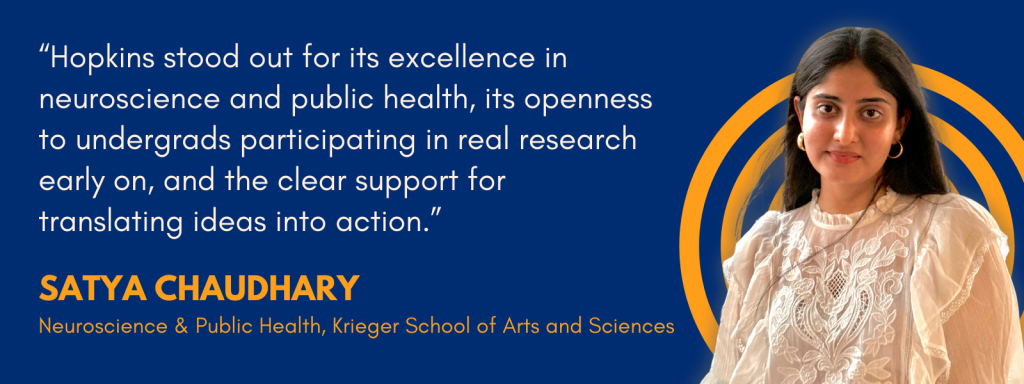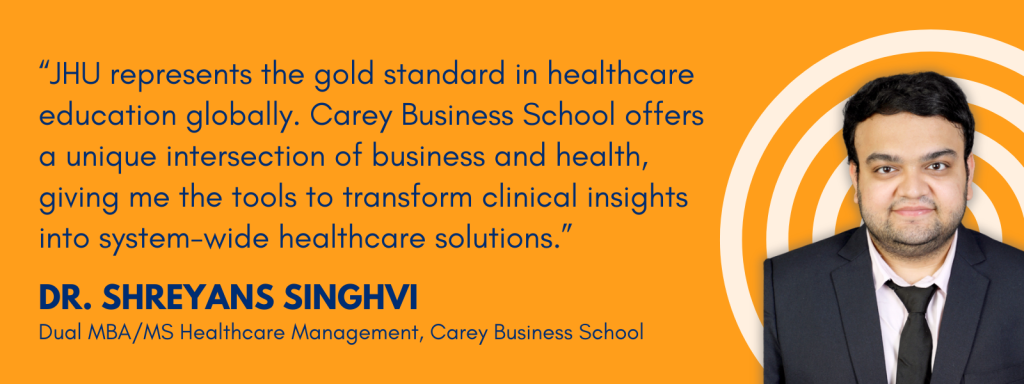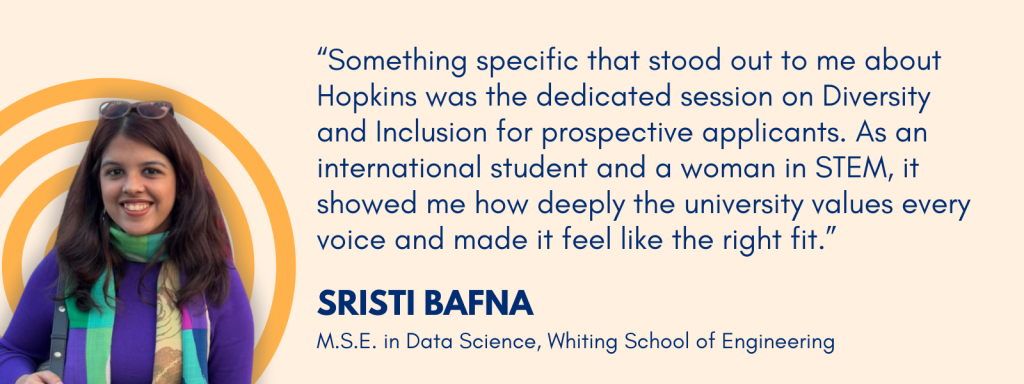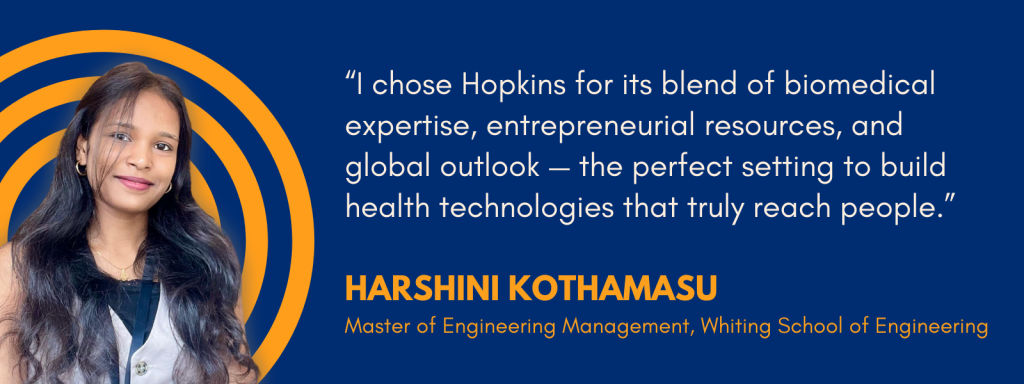A Fresh Cohort of Indian Students Begin Their Journeys at Hopkins
From data science to public health, these students share what drew them to Johns Hopkins and how they hope to create impact.
A new academic year has begun at Johns Hopkins, filling classrooms, labs, and student spaces with fresh energy. Among the many students from India starting their Hopkins journeys this fall, six shared their stories with GKII. Their paths span data science, biomedical engineering, neuroscience, public health, and business. While their motivations differ, they are united by a conviction that learning must lead to meaningful impact.
For some, that conviction is deeply personal. When her grandmother was diagnosed with Parkinson’s disease, Satya Chaudhary began asking how lifestyle interventions could shape long-term brain health. She is now double majoring in neuroscience and public health at Krieger School of Arts and Sciences, while also leading MoonTide, a comic book project that has reached over 1,000 rural schoolgirls in Gujarat to break myths around menstruation. “Hopkins doesn’t ask me to choose between the brain and the bigger picture,” she says.

Dr. Shreyans Singhvi, who treated patients during India’s COVID-19 crisis, came to a similar conclusion from a different starting point. He saw families devastated not just by the virus but by failures in healthcare delivery — resource shortages, poor coordination, and systemic inefficiencies. “While I could save individual lives as a doctor, I realized that lasting change requires transforming healthcare systems at scale,” he explains. At Carey Business School, a dual MBA/MS degree will give him the business and leadership skills to design those systems and harness technologies like AI for access and equity.

That same commitment to system-level reform drives Anchal Purbey, also pursuing an MBA (Health Technology and Innovation) at Carey Business School. With six years of experience spanning maternal and child health, tuberculosis, and nutrition, she is focused on building the business acumen needed to complement his technical expertise. At Population Council Consulting, she led evaluations and data systems that informed program design. But, she says, “Technical expertise alone has limits. I wanted to strengthen my business acumen to complement my public health background and design solutions that improve access and efficiency.”
Others channel their focus into science and technology with direct social applications. Sristi Bafna, beginning her M.S.E. in Data Science at the Whiting School of Engineering, sees the field as a way to connect people, data, and infrastructure. She previously worked with Karya, a digital data cooperative incubated at Microsoft Research, where she built socioeconomic indices for marginalized gig workers. At Hopkins, she is eager to explore digital public goods and human language acquisition at the Center for Language and Speech Processing. “Hopkins showed me how much it values every voice, and that made the university feel like the right fit,” she says.

Medha Ramaswamy, pursuing Biomedical Engineering (Computational Medicine) at Whiting School of Engineering, is excited by research that translates directly into clinical practice. At the Singapore Institute of Clinical Sciences, she studied how maternal stress impacts child neurodevelopment through the GUSTO trial. In India, her machine learning project predicting genetic risks won the NASSCOM TechInnovate challenge. At Hopkins, she is excited to join an ecosystem where, as she puts it, “innovation doesn’t stop at theory—it moves into real-world clinical settings and impacts lives.”
Harshini Kothamasu, joining the Master of Engineering Management program, has navigated both research and industry. Trained in biotechnology, she worked in Hyderabad’s startup ecosystem at T-Hub and ISB, where she saw the potential of applying science to solve pressing healthcare challenges. She also contributed to outreach efforts with local NGOs, an experience that taught her how access and affordability determine whether solutions reach people. Now at Hopkins, she is focused on biomedical product development, particularly wearable medicine and transdermal drug delivery. “Even the most promising solutions matter only if they reach the people who need them,” she emphasizes.

These stories illustrate a wider trend among Indian students at Hopkins. Each year, hundreds pursue STEM-intensive programs such as data science, computer science, biomedical innovation, and public health — fields that align with global career opportunities and India’s own development priorities.
As this new academic year unfolds, these voices remind us that purpose and ambition can be deeply personal, yet also universal. Their work reflects the enduring ties between India and Johns Hopkins, and the shared belief that education can transform both individuals and systems.
Over the next few weeks, GKII will share each of their stories in our new series, Why I Chose Hopkins. Stay tuned!